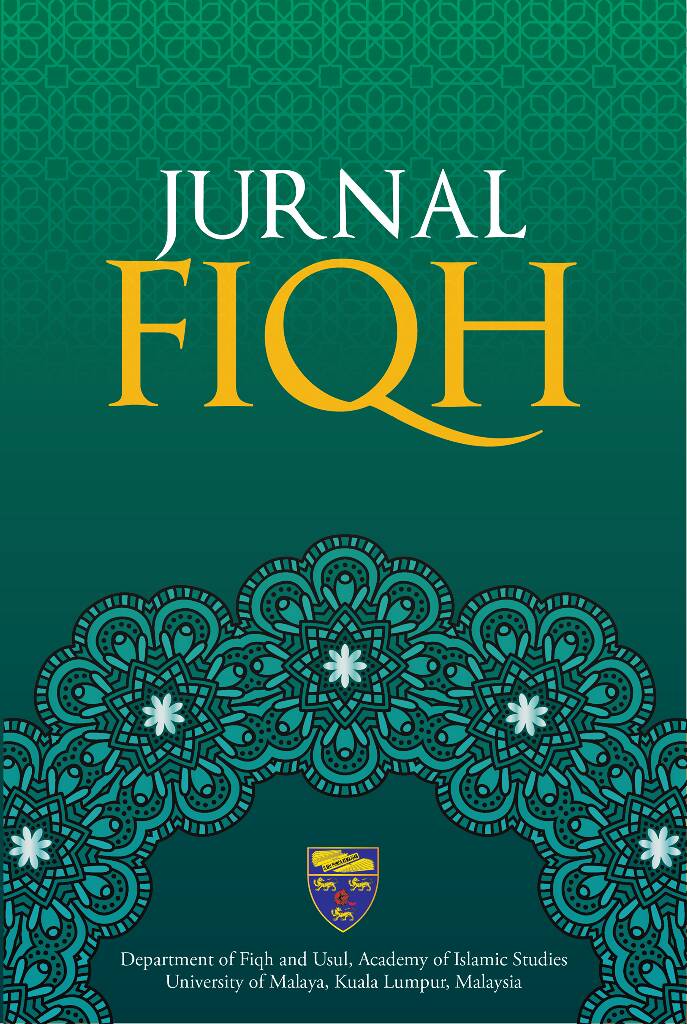من منظور الشريعة الإسلامية: دراسة فقهية تحليلية (BNPL) تقييم خدمات اشتر الآن وادفع لاحقًا
Evaluation of Buy Now, Pay Later (BNPL) Services from Islamic Sharia Perspective: An Analytical Jurisprudence Study
DOI:
https://doi.org/10.22452.fiqh.Vol21.2.4Keywords:
Buy Now, Pay Later, BNPL, Sharia, Riba.Abstract
This research explores the growing popularity of Buy Now, Pay Later (BNPL) services and their alignment with Islamic Sharia principles. As these services gain traction among Muslims, it is essential to ensure compliance with Sharia laws in financial transactions. The study highlights the necessity to evaluate BNPL’s adherence to rules regarding riba (interest), gharar (uncertainty), and fairness, aiming to clarify their permissibility under Islamic jurisprudence. The research employs an analytical jurisprudential approach, reviewing Sharia sources, fatwas, and interviews with scholars. Key findings suggest that while some BNPL contracts conflict with Sharia due to interest charges and fees, they can be adapted to comply by removing these elements and promoting transparency. The study underscores the importance of educating companies and consumers on Sharia-compliant models and consulting scholars to develop alternative financing solutions that align with Islamic values.
Downloads
References
Accounting and Auditing Organization for Islamic Financial Institutions (AAOIFI). (n.d.). Shari’ah Standard No. 8. In Shari’ah Standards Manama: AAOIFI. n.d https://aaoifi.com/?lang=en
Aḥmad ibn ʿAlī Ibn Ḥajar al-ʿAsqalānī. Fatḥ al-Bārī Sharḥ Ṣaḥīḥ al-Bukhārī, 2nd ed., edited by ʿAbd al-ʿAzīz ibn Bāz. Riyadh: Dār al-Salām. 1993.
Al-Bukhārī, Muḥammad ibn Ismāʿīl. al-Jāmiʿ al-Ṣaḥīḥ, 2nd ed. Riyadh: Dār al-Salām. 1987.
Al-Fayyad, Y. B. A. R. The sale through deferred payment intermediary. Journal of the College of Sharia at Tafhana Al-Ashraf in Dakahlia, Egypt, 25, (2002),2288–2298. https://jfslt.journals.ekb.eg/article_276221.html (Accessed May 15, 2024).
Al-Ghazālī, Abū Ḥāmid Muḥammad ibn Muḥammad. al-Wasīṭ fī al-Madhab. Vol. 3. Cairo: Dār al-Salām, 1997, pp. 71-72.
Al-ʿImrānī, Y. ibn M. Al-Bayān fī Madhhab al-Shāfiʿī(Vol. 6, p. 284). Beirut: Dār al-Fikr
Al-Jaṣṣāṣ, Abū Bakr Aḥmad. Aḥkām al-Qur'ān, 3rd ed. Beirut: Dār al-Fikr, 1995.
al-Jaṣṣāṣ, Abū Bakr Aḥmad. Aḥkām al-Qur'ān, vol 1. 3rd ed. Beirut: Dār al-Fikr, 1995., 566.
al-Jīlānī, ʿA. al-Q. (n.d.). Kifāyat al-Ṭālib al-Rabbānī (Vol. 2, p. 465). Beirut: Dār al-Kutub al-ʿIlmiyyah.
Al-Kāsānī, ʿA. ibn A. (1982). Badāʾiʿ al-Ṣanāʾiʿ (Vol. 6, pp. 16–17). Beirut: Dār al-Kutub al-ʿArabī.
Al-Kāsānī, ʿAlāʾ al-Dīn. Sharḥ al-Badā'iʿ al-Ṣanā'iʿ, 3rd ed. Beirut: Dār Iḥyā' al-Turāth al-ʿArabī, 2002.
Al-Khurshī, M. A. (n.d.). Sharḥ Mukhtaṣar Khalīl (Vol. 6, p. 30). Cairo: Dār al-Kutub.
Al-Mardāwī, ʿA. ibn S. Al-Inṣāf fī Maʿrifat al-Khilāf (Vol. 13, p. 98). Beirut: Dār Ihyā’ al-Turāth al-ʿArabī.
Al-Nawawī, Abū Zakariyyā. Sharḥ Ṣaḥīḥ Muslim, 2nd ed. Cairo: Dār al-Kutub al-Miṣriyyah, 1985.
Blockchain Technology and Shariah Compliance. 2022. Accessed August 5, 2023. https://www.islamicdigitaleconomy.org/articles/blockchain.
Buy Now Pay Later (BNPL): Shariah Compliant? Ethis Blog, https://ethis.co/blog/اشتر%D9%90-الآن-وادفع-لاحقًا-bnpl-متوافق-مع-أحك/, accessed on 2 July 2024.
Ibn ʿAbd al-Barr, Yūsuf ibn ʿAbd Allāh.. al-Tamhīd limā fī al-Muwaṭṭaʾ min al-Maʿānī wa al-Asānīd, 1st ed., edited by ʿAbd Allāh ibn ʿAbd al-Muḥsin al-Turkī. Riyadh: Dār Ḥijr, 2002.
Ibn Taymiyyah, Taqī al-Dīn Aḥmad. Majmūʿ al-Fatāwā. Medina: King Fahd Complex for the Printing of the Holy Qur'an.1997.
Tamāra, Customer terms and conditions, https://tamara.co/ar-SA/terms-and-conditions July 10, 2024.








